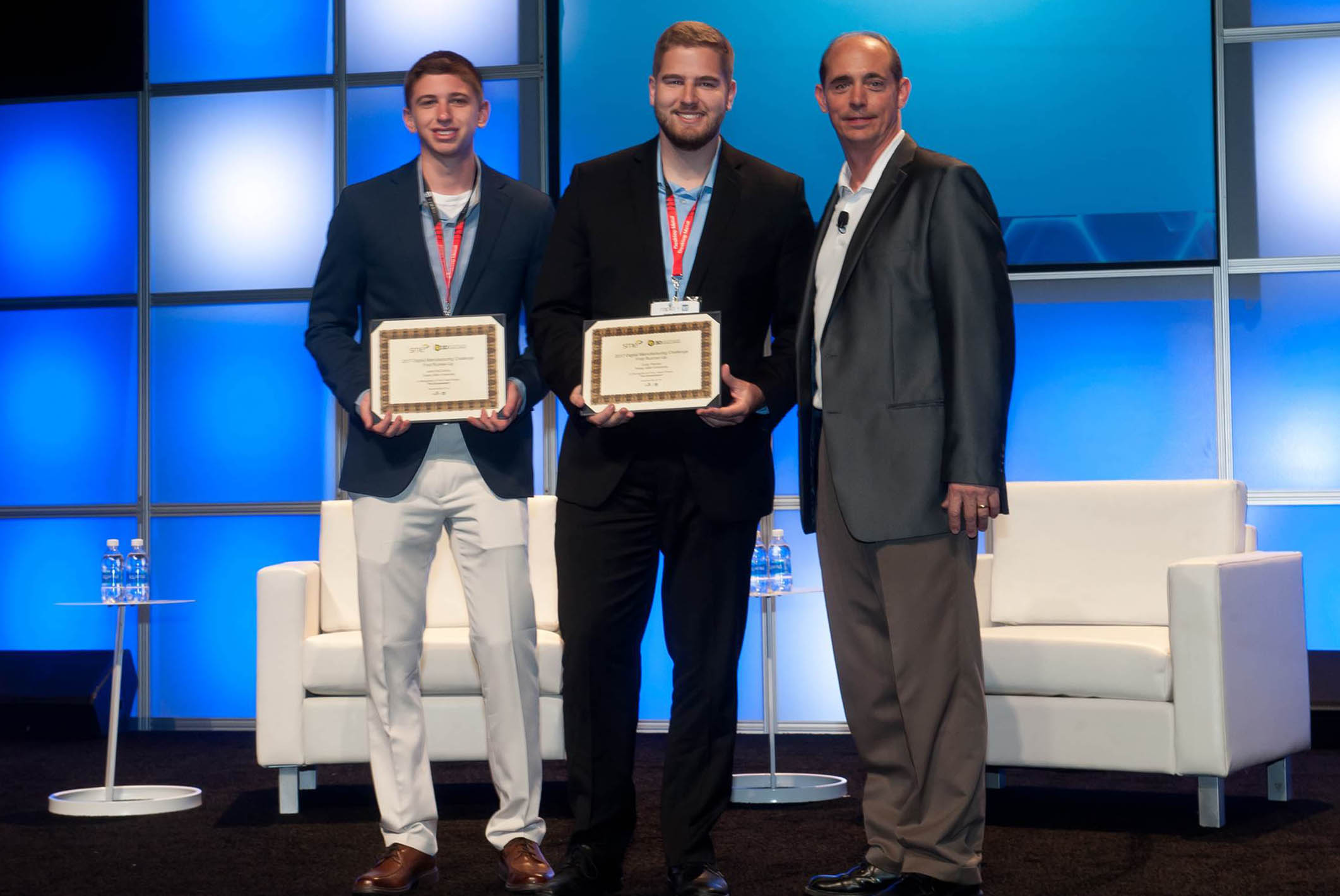
Two Texas A&M University engineering students won an award for their paper on additive manufacturing at the Society of Manufacturing Engineers’ (SME) 2017 Digital Manufacturing Challenge. Justin McGinnity, a student in the Department of Mechanical Engineering, and Cody Piercey, a student in the Department of Engineering Technology and Industrial Distribution, placed second for their paper “How Digital Manufacturing Gives Life to Customizable Safety Devices.”
Each year SME holds a contest where student designers and engineers are challenged to demonstrate new and creative ways that additive manufacturing (3-D printing) can be applied.
With the increasing number of neck injuries and concussions due to sports and activities such as horseback riding or skiing, protecting the neck is of the utmost importance. For their device, Piercey and McGinnity developed a customizable neck brace that is designed to distribute localized stress around the neck made out of a hollow mesh filled with an impact absorbing gel.
The mesh, called the exoskeleton, is made using 3-D printing but the process is focused on producing a unique product on a much larger scale and gives the consumer the ability to be involved in the manufacturing process and customize the end-product to their liking. Customers will be able to go into a database that contains different models and sizes of the mesh that they can download, edit and create. Then they will be able to mold and form the mesh to their shape for a perfect fit.
With their product, the team hopes to capitalize on the newly developed market of consumer customizable medical devices. “The developments we have made with this project showcase the future use of direct digital manufacturing for custom applications related to the sports and medical industry that is cost effective can be provided to the end user quickly,” McGinnity said.
To further optimize the mesh, the team is currently in talks with the Texas A&M Equine Initiative to optimize the mesh so they can use it as a protective gear during equestrian training.
As a result of their win, McGinnity and Piercey were flown out to Pittsburgh, Pennsylvania to receive their award and present their project to developers in the field of additive manufacturing. McGinnity and Piercy are advised by Dr. Tanil Ozkan, professor in the Department of Mechanical Engineering.
With help from Melissa Chavez, a senior mechanical engineering student at West Texas A&M University, the team has recently modified the design and is participating in NASA’s Tech Briefs Create the Future Contest. View their design and cast your vote here: https://contest.techbriefs.com/2017/entries/consumer-products/8258